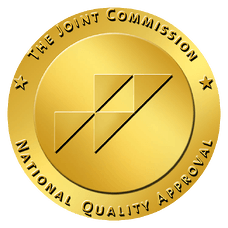New Paragraph
Complete the pre-screen form below to initiate the admission process. Our admissions team will contact you shortly.
Treatment of methamphetamine (meth) abuse involves several crucial phases, starting with medical detoxification in a residential or outpatient environment, followed by sustained support post-treatment.
A methamphetamine use disorder is a serious and possibly life-threatening condition. However, with appropriate intervention, individuals can effectively manage symptoms and lead a healthy, enriched life. Typically, specialized drug rehabilitation centers administer meth treatment, led by a team of healthcare professionals, including physicians, nurses, therapists, and addiction specialists.
The treatment options available for meth addiction vary depending on individual factors, such as gender, duration of addiction, and any potential co-occurring conditions such as depression or anxiety.
Meth Addiction Treatment & Rehab: Best Locations Near Me

Effects of Meth
Methamphetamine exerts significant physical and psychological effects, the former frequently influencing the latter. This substance induces substantial increases in serotonin, dopamine, and norepinephrine levels in the brain, referred to as the brain's "feel-good" and reward chemicals. Dopamine and serotonin are responsible for promoting feelings of joy and overall well-being, while norepinephrine offers a boost of energy.
When under the influence of meth, individuals often encounter intense euphoria and happiness, feeling almost indestructible and unburdened. However, as the drug's effects wear off, the subsequent crash can be equally profound, resulting in fatigue and despondency. This decline can lead to a state where once enjoyable activities lose their allure, and cognitive abilities diminish. Extended meth use has the ability to modify brain chemistry, reducing the production and receptiveness to these vital neurotransmitters.
Further consequences of meth abuse include sleep disturbances, heightened heart rate and blood pressure, and decreased appetite. Users frequently endure extended periods without sleep and minimal food consumption, contributing to an array of physical and mental obstacles stemming from neglecting their bodies' requirements for proper rest and nutrition.
Rediscover vitality through the all-encompassing Wildcat Recovery program tailored to tackle your struggles with meth addiction and dual diagnosis requirements. Providing crucial dual diagnosis treatment for individuals dealing with the deep psychological effects of meth, this program offers a variety of therapies all under one roof.
Diverse treatment modalities:
At the heart of Wildcat Recovery's meth addiction treatment center are personalized plans designed for each individual. While a range of therapies are utilized, psychotherapy serves as a cornerstone, offering individual, group, and family sessions. Within individual therapy, techniques like CBT, DBT, and EMDR are employed to promote new ways of thinking and life strategies for a positive recovery experience. Group therapy emphasizes improving communication abilities, nurturing connections, and creating a supportive community of peers.
Experience the therapeutic benefits:
Recreational therapy options such as art, equine, and music therapy encourage imaginative exploration of personal challenges and foster self-assurance and emotional release. Essential nutrition therapy plays a pivotal role in facilitating the healing journey by addressing the detrimental eating habits linked to methamphetamine use and aiding in physical recuperation.
The relapse prevention aspect of the Wildcat Recovery program enables individuals to identify triggers, control cravings, and cultivate successful coping methods for handling the everyday stressors of life. Enhance your knowledge of addiction, the effects of meth, and how to confidently overcome potential relapse challenges.

